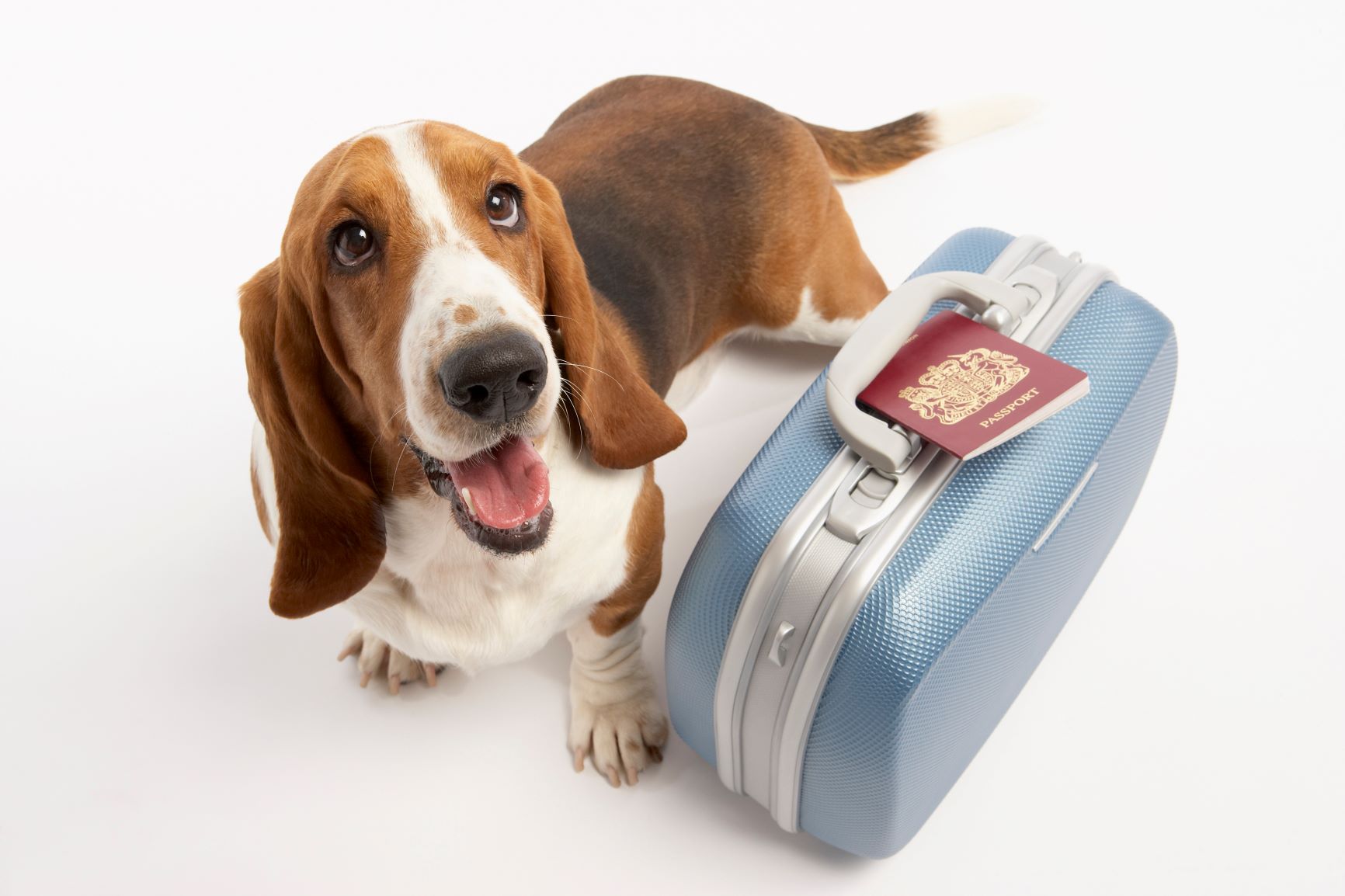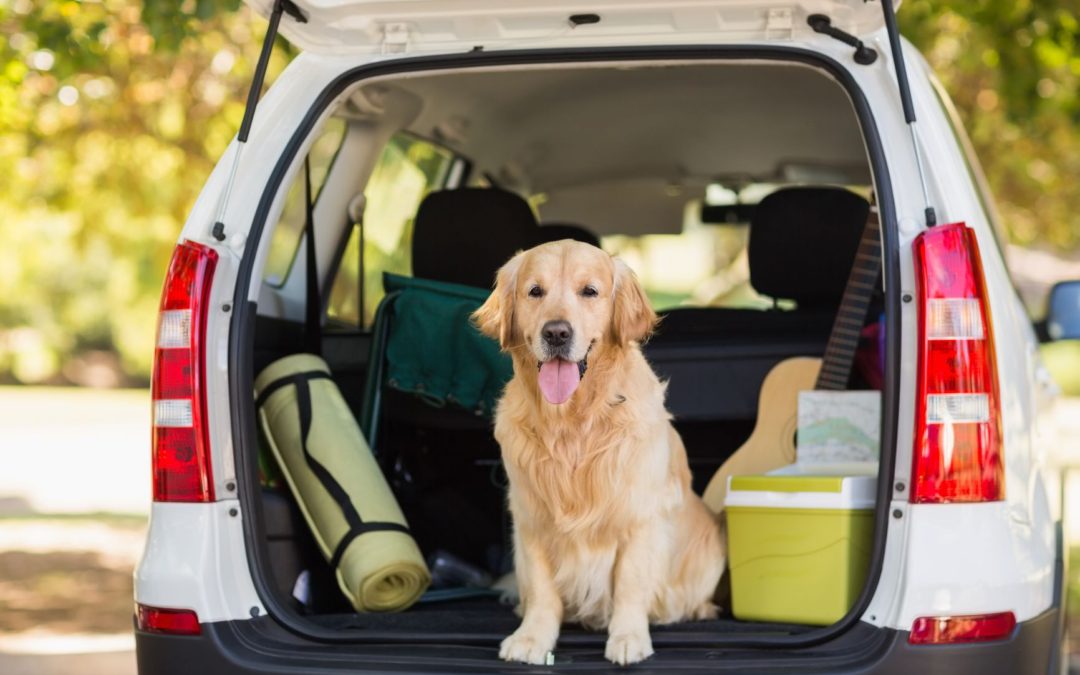The holiday season is almost here, and if you’re like us, you can’t bear the thought of leaving your dog behind when you travel. When planning a vacation with your dog, here’s what you need to know to help keep your trip safe and dog friendly.
Your Dog’s Packing List
Remembering everything for yourself can be tricky enough; use our list to help keep track of your dog’s necessities:
- Collar and ID tags
- Leash and harness
- Your dog’s regular food and treats
- Your dog’s medications and pill pockets
- Flea/tick and heartworm disease preventives
- Food and water bowls
- Your dog’s bed
- Crate or carrier
- A few of your dog’s favorite toys
- Waste bags
- Paw/coat wipes
- Paper towels and carpet cleaner
- Pee pads (if needed for puppies or senior dogs)
- Dog license
- Current photo of your dog
- Dog first-aid kit (we can give you a list of what to include)
- Veterinary records (rabies and other vaccination history, medical conditions)
- Jacksonville Community Pet Clinics’ phone numbers
- Emergency vet where you’ll be staying
- Health certificate and/or acclimation certificate (contact us as far in advance as possible if you’ll be flying so we can get you any necessary paperwork)
Consider getting a special ID tag made with up-to-date contact info—ideally, your cell phone number and the address where you’ll be staying on your vacation.

Trains, Planes, and Automobiles
Whether you’re traveling by car, plane, or train, make sure you’re prepared. Besides confirming that your dog will be welcome at your destination (either with your family or friends or at the hotel you’ve booked), follow these tips.
Traveling by Vehicle
- Keep your dog restrained using a properly secured crate, carrier, or travel harness. Ideally, whichever method you choose should be crash test certified by the Center for Pet Safety. Although Florida law doesn’t require that your dog be restrained, other states may, and it’s the best way to help keep both your dog and yourself safe when traveling by vehicle.
- Make sure you either leave your dog’s leash on or attach it before letting him or her out of the car for potty breaks.
- Give your dog a chance to drink plenty of water while on the road. This may mean stopping more frequently, but that’s a small price to pay to have your dog travel with you. Remember to account for these extra stops when planning how long your drive will take.
- If you’re traveling by yourself, have a plan for what you’ll do with your dog while you take a bathroom break or grab a bite to eat. Some rest stops will allow dogs inside the bathrooms, and more and more restaurants welcome dogs (at least outside on a patio). Packing your meals may also be a good option. Whether it’s hot or cold, never leave your pet alone in a vehicle.
Traveling by Plane or Train
- Call ahead to confirm that the airline carrier or train service allows dogs and that your dog meets the size requirements.
- Find out whether you need any certificates (health or acclimation).
- Follow all rules and regulations regarding crates/carriers and food and water bowls.
- Make sure your dog will be comfortable for the length of the trip (the carrier should allow your dog to stand up and turn around in it).
Specific Precautions for Plane Travel
- Ask whether your dog can accompany you in the cabin. If not, let the captain and flight attendants know that your dog is traveling in the cargo hold.
- Make sure your dog’s carrier has a travel label attached that includes your name, phone number, home address, and destination contact info.
- Avoid giving your dog any sedatives or tranquilizers unless we have specifically recommended that you do so. These medications may increase the chance of respiratory and heart issues during a flight.
- When possible, take a direct flight to your destination, and check in as close to departure as you can to limit how long your pet will have to stay in the carrier.
- Ask us how far ahead of your flight you should feed your pet.
- If your dog has a short face (such as Boston terriers, bulldogs, Pekingese, and pugs), ask your vet if plane travel is safe for your individual dog.
Give Your Jacksonville Vet a Call
Call us if you have any questions about traveling with your dog. We can discuss options for car sickness, anxiety, and anything else you might be concerned about.
We can also make sure you’re stocked up on parasite preventives for the length of your trip and your dog’s vaccinations are current. Affordable pet shots are available from our Jacksonville mobile pet clinic or one of our locations.
If your dog isn’t microchipped, now is a great time to have this quick, simple procedure done. This form of permanent identification gives you peace of mind that if lost, your pet will have the best chance of finding his or her way back to you—something that may be even more important when you’re away from home.


